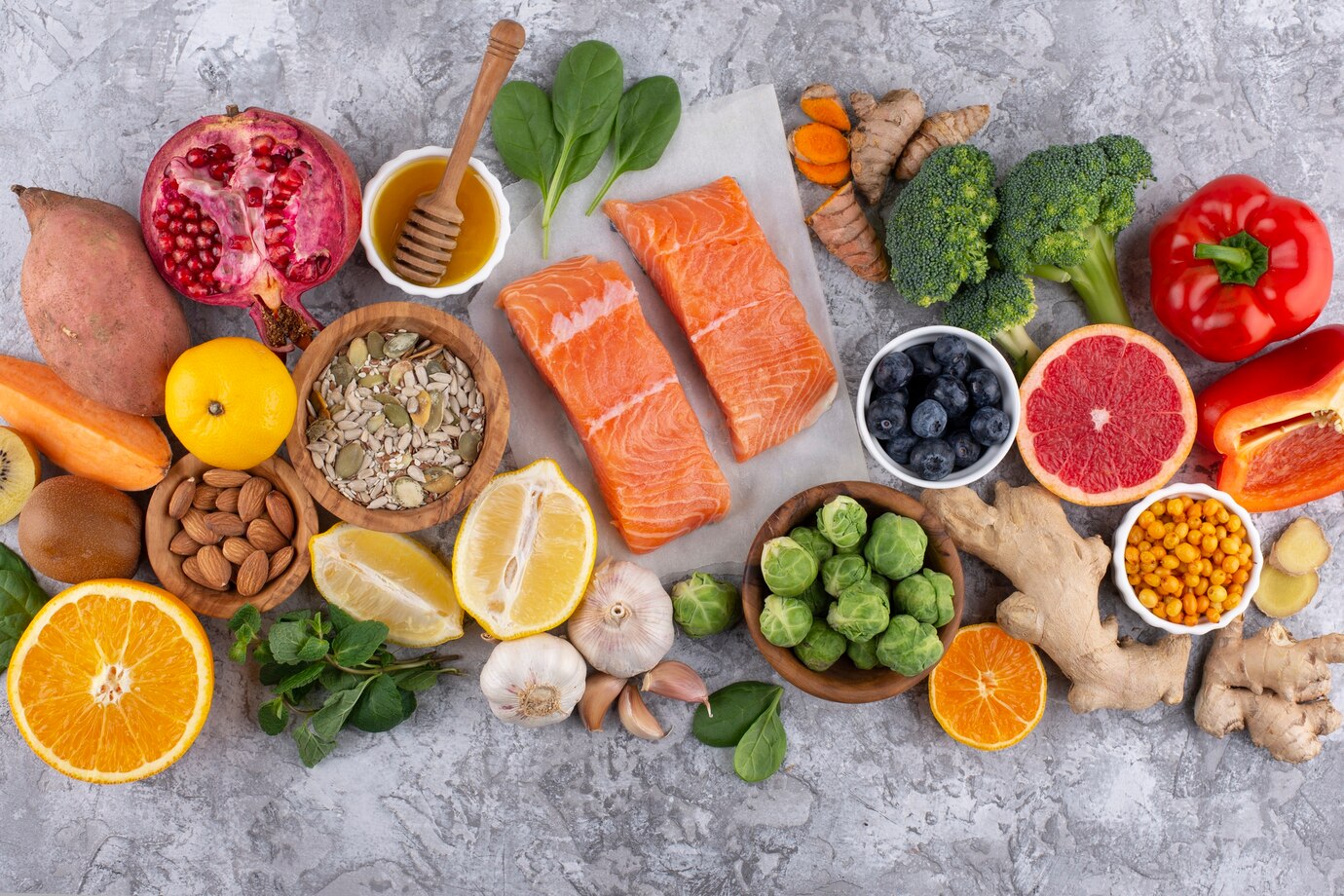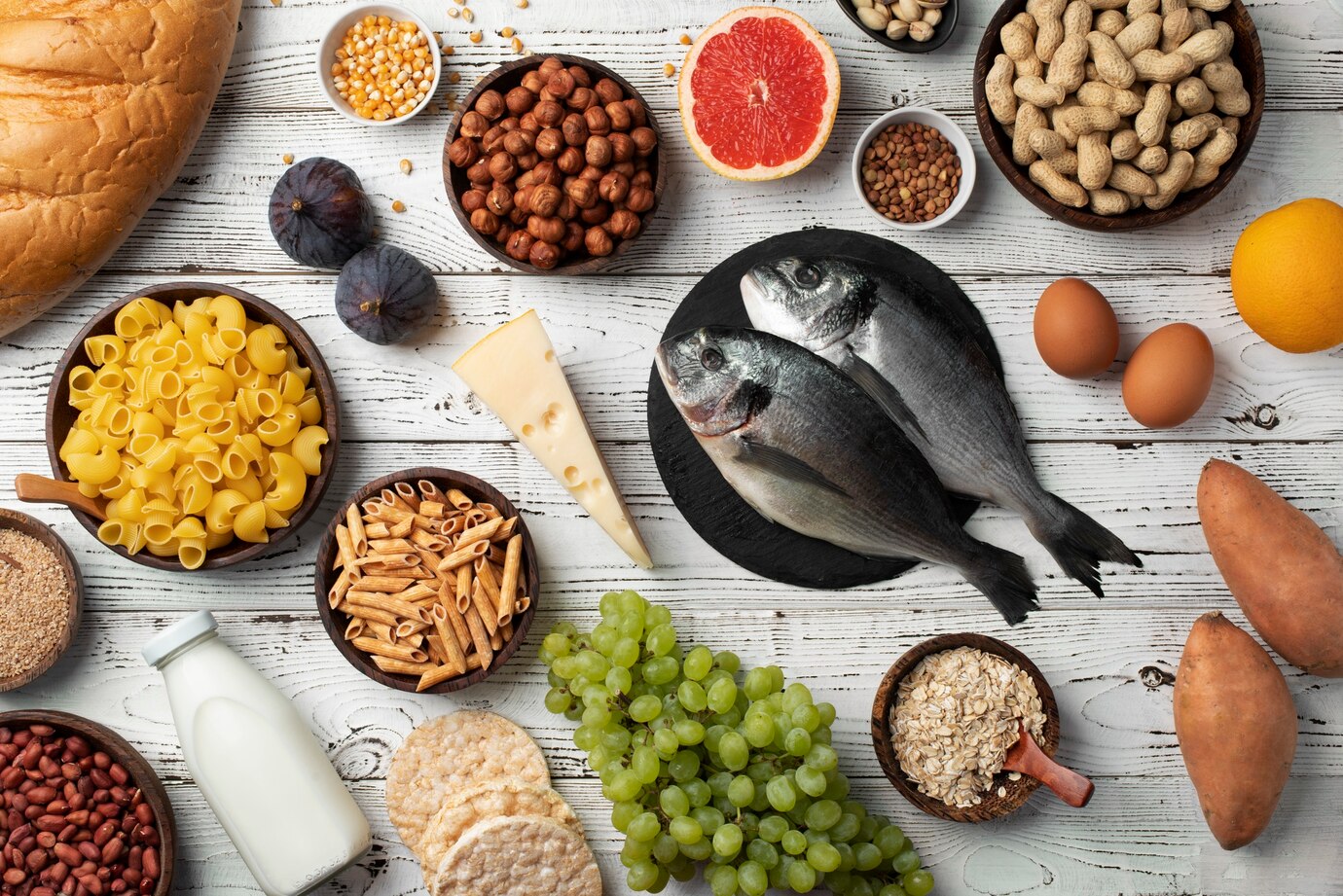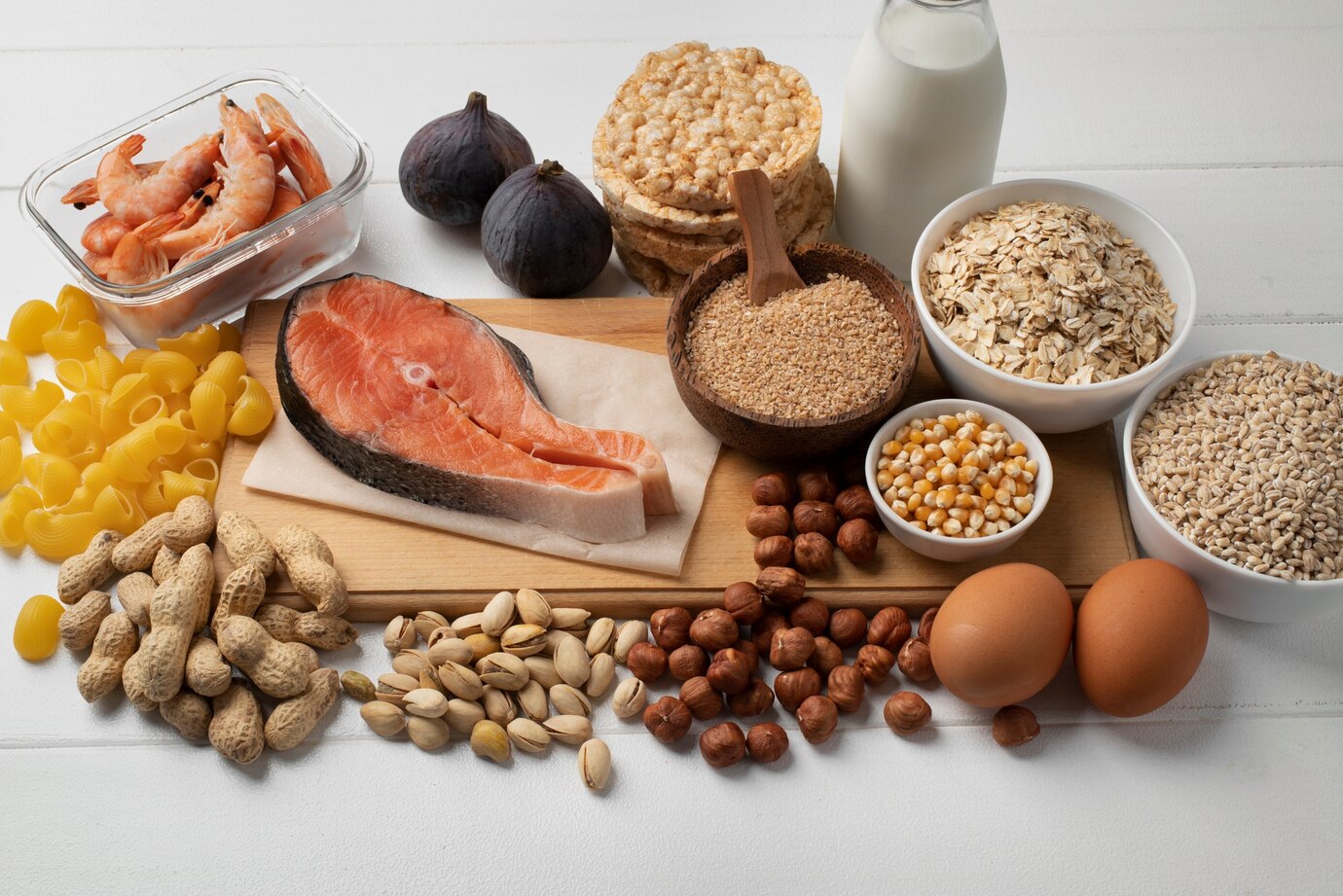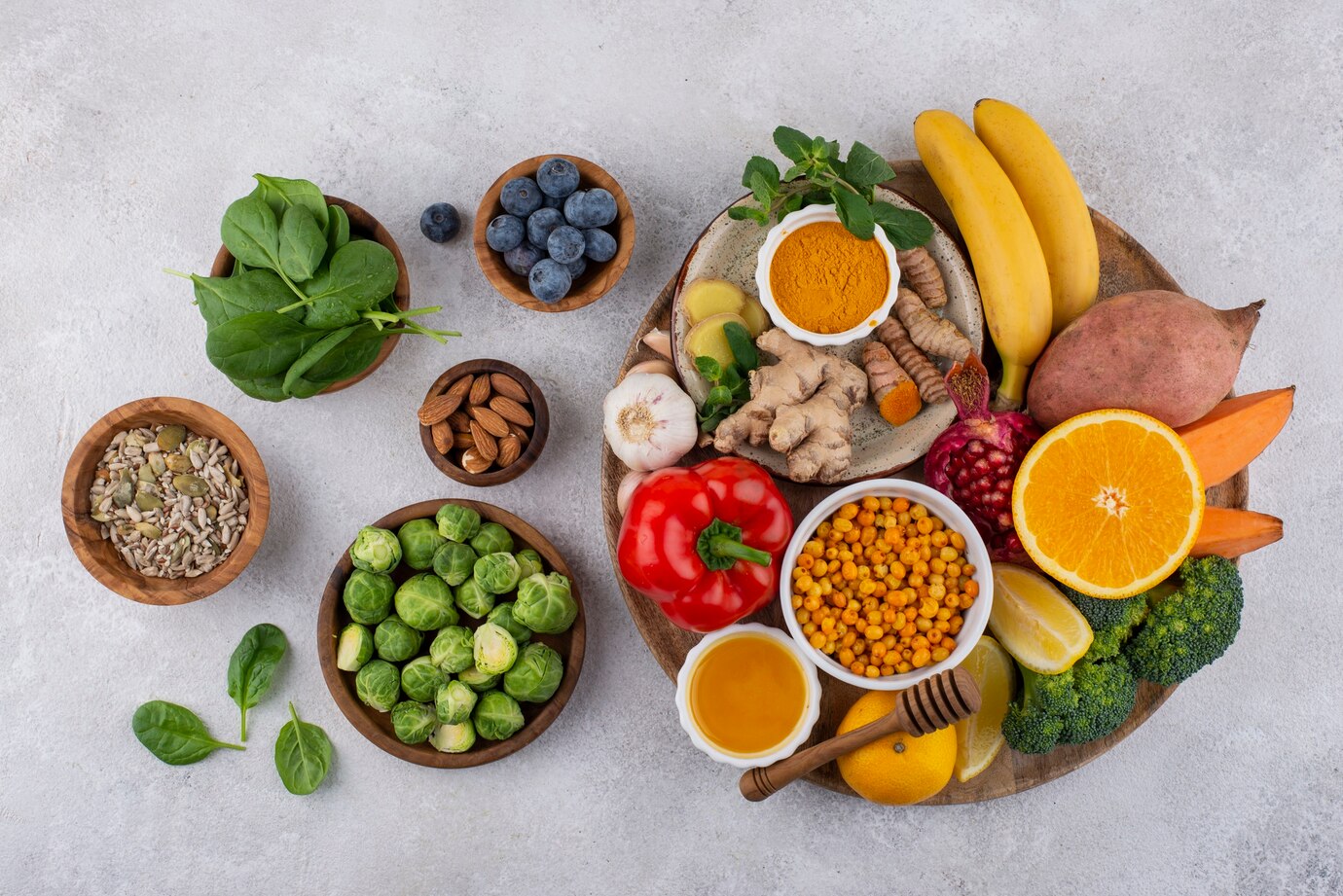
Essential Vitamins & Minerals for Optimal Health
A balanced diet is an essential part of maintaining good health and can help you feel your best. But it can be challenging to get the right nutrients. This includes vitamins, essential minerals, and vital nutrients that the body needs. But all of this is to support immune function, energy levels, and long-term health. In this guide, we’ll explore the best vitamins for wellness and minerals for you. It also shows how they participate in nutrition for immune health and vitality.
Why Are Vitamins & Minerals Important?

Vitamins and minerals play a crucial role in the body’s functions. These nutrients boost the immune system and support brain health. They’re also key for energy production, bone strength, and cellular repair. A deficiency in any essential minerals or vitamins can lead to various health issues. These issues can include fatigue, weakened immunity, and poor mental focus.
Best Vitamins for Wellness
1. Vitamin D – The Sunshine Vitamin
Benefits:
- Supports bone health by aiding calcium absorption.
- Enhances mood and reduces the risk of depression.
- Strengthens the immune system, making it essential for nutrition for immune health.
Sources: Fatty fish (salmon, mackerel), fortified dairy, egg yolks, and sunlight exposure.
Pro Tip: In the UK, sunlight is scarce in winter. So, think about taking a Vitamin D supplement.
2. Vitamin C – The Immunity Booster
Benefits:
- Supports immune defence by helping white blood cells function efficiently.
- Acts as a powerful antioxidant, protecting cells from damage.
- Improves skin health by boosting collagen production.
Sources: Citrus fruits, strawberries, bell peppers, and broccoli.
Pro Tip: Vitamin C is water-soluble, meaning the body doesn’t store it. Include fresh sources in your daily diet.
3. Vitamin A – The Eye and Skin Protector
Benefits:
- Maintains healthy vision and prevents night blindness.
- Supports skin health by promoting cell turnover.
- Strengthens immune function by enhancing mucous barriers.
Sources: Carrots, sweet potatoes, spinach, and liver.
Pro Tip: Choose colourful fruits and veggies. They are high in beta-carotene, which helps make Vitamin A.
4. Vitamin B12 – The Energy Booster
Benefits:
- Supports red blood cell formation, reducing anaemia risk.
- Enhances brain function and prevents memory decline.
- Plays a crucial role in metabolism and energy production.
Sources: Meat, dairy, eggs, fortified plant-based milk, and nutritional yeast.
Pro Tip: Vegans should consider a Vitamin B12 supplement as it is mainly found in animal products.
5. Vitamin K – The Bone and Blood Health Supporter
Benefits:
- Essential for blood clotting and wound healing.
- Helps maintain strong bones by supporting calcium absorption.
- Reduces the risk of osteoporosis and fractures.
Sources: Leafy greens (kale, spinach), broccoli, and fermented foods.
Pro Tip: Pair Vitamin K-rich foods with healthy fats (e.g., olive oil) for better absorption.
Essential Minerals for Overall Health

1. Iron – The Oxygen Transporter
Benefits:
- Supports the production of haemoglobin, which carries oxygen in the blood.
- Prevents fatigue and anaemia, especially in women.
- Boosts brain function and concentration.
Sources: Red meat, lentils, spinach, tofu, and fortified cereals.
Pro Tip: Boost iron absorption by eating it with foods high in Vitamin C, like oranges or peppers.
2. Calcium – The Bone Strengthener
Benefits:
- Essential for bone and teeth health.
- Helps regulate muscle contractions, including the heartbeat.
- Supports nerve function and hormone release.
Sources: Dairy products, almonds, fortified plant-based milk, and leafy greens.
Pro Tip: Avoid excessive caffeine intake, as it can reduce calcium absorption.
3. Magnesium – The Stress Reliever
Benefits:
- Helps regulate muscle and nerve function.
- Reduces stress and promotes better sleep.
- Supports heart health by maintaining normal blood pressure levels.
Sources: Nuts (almonds, cashews), dark chocolate, whole grains, and bananas.
Pro Tip: Soaking in an Epsom salt bath can help the body absorb magnesium through the skin.
4. Zinc – The Immunity Defender
Benefits:
- Plays a key role in wound healing and cell regeneration.
- Supports immune function, making it vital for nutrition for immune health.
- Helps with hormone balance and skin health.
Sources: Shellfish, pumpkin seeds, chickpeas, and dairy.
Pro Tip: Zinc is crucial for cold prevention—start taking it at the first sign of illness.
5. Potassium – The Heart Health Mineral
Benefits:
- Regulates fluid balance and blood pressure.
- Supports proper nerve signals and muscle contractions.
- Reduces the risk of stroke and heart disease.
Sources: Bananas, avocados, sweet potatoes, and beans.
Pro Tip: Reduce sodium intake while increasing potassium-rich foods to maintain heart health.
How to Get the Best Vitamins for Wellness Naturally
Supplements can help, but getting nutrients from whole foods is the best way to stay healthy. Here’s how:
1. Eat a Colourful Diet
A variety of fruits and vegetables ensures you get a broad spectrum of vitamins and minerals.
2. Choose Whole Foods Over Processed Foods
Refined and processed foods often lack essential minerals and vitamins. Opt for whole grains, lean proteins, and natural sources of nutrients.
3. Pair Nutrients for Better Absorption
Certain vitamins and minerals work best together. For example:
- Iron + Vitamin C = Better iron absorption.
- Vitamin D + Calcium = Stronger bones.
- Magnesium + B Vitamins = Enhanced energy production.
4. Stay Hydrated
Water is essential for nutrient transport, digestion, and absorption.
Should You Take Supplements?
It’s ideal to get nutrients from food. However, some people may need supplements. This can be due to dietary restrictions or medical issues.
Who May Need Supplements?
- Vegans (Vitamin B12, Iron, Omega-3s).
- Pregnant women (Folic acid, Iron).
- Individuals with osteoporosis risk (Calcium, Vitamin D).
- People with digestive disorders (Zinc, Magnesium).
Always consult a healthcare professional before taking supplements.
Vitamins & Minerals for Your Health

The best vitamins for wellness and essential minerals are needed by you. They impact your health, your energy, and your nutrition for immune health. Eat a balanced diet with lots of whole foods. This helps meet your daily nutrition needs.
How do you like to include vitamins and minerals into your diet? Let your thoughts roam free in the comments!


